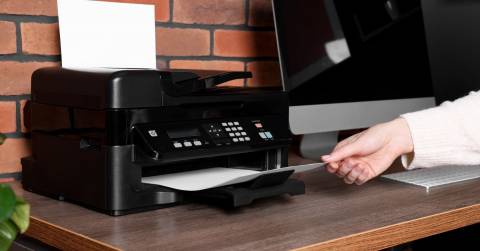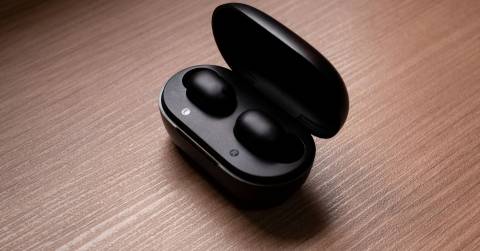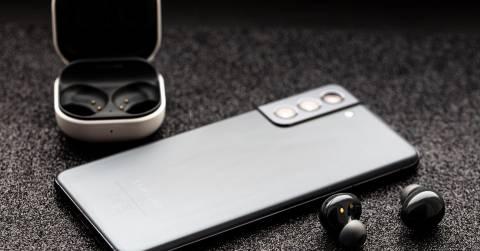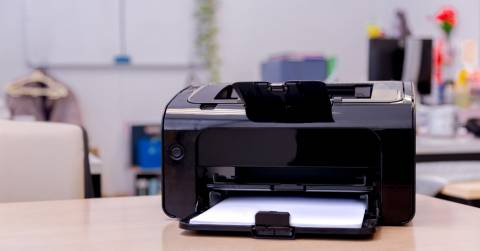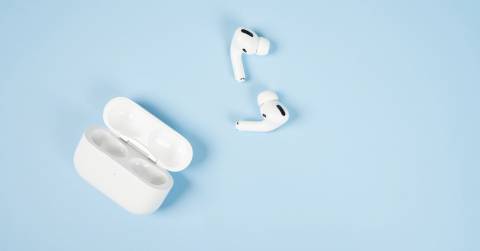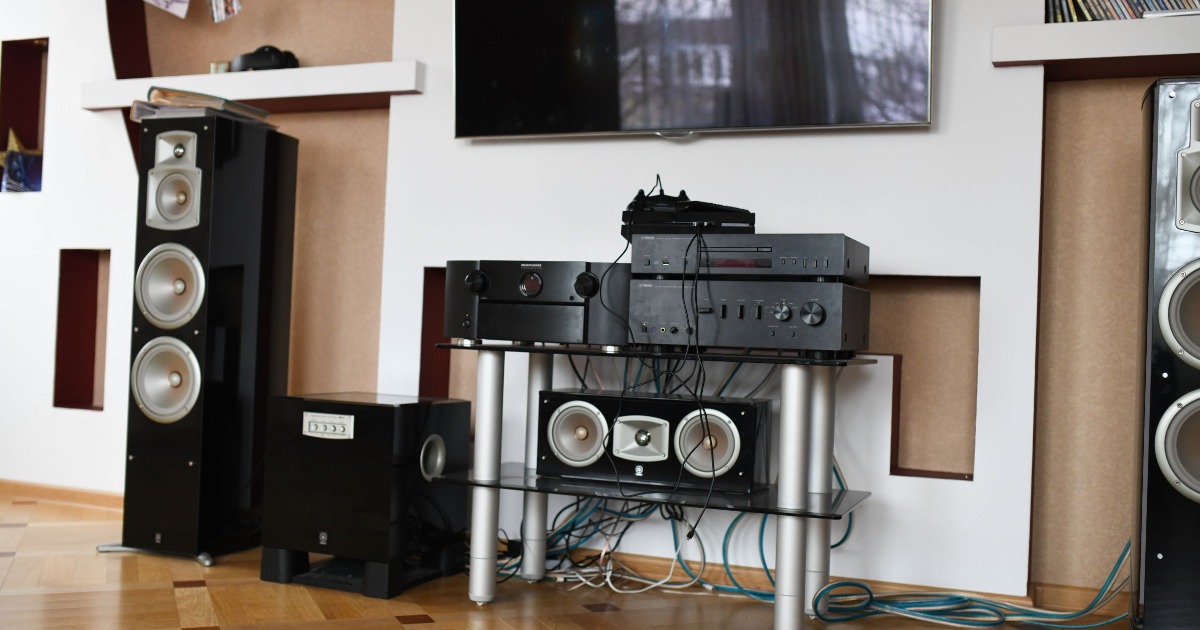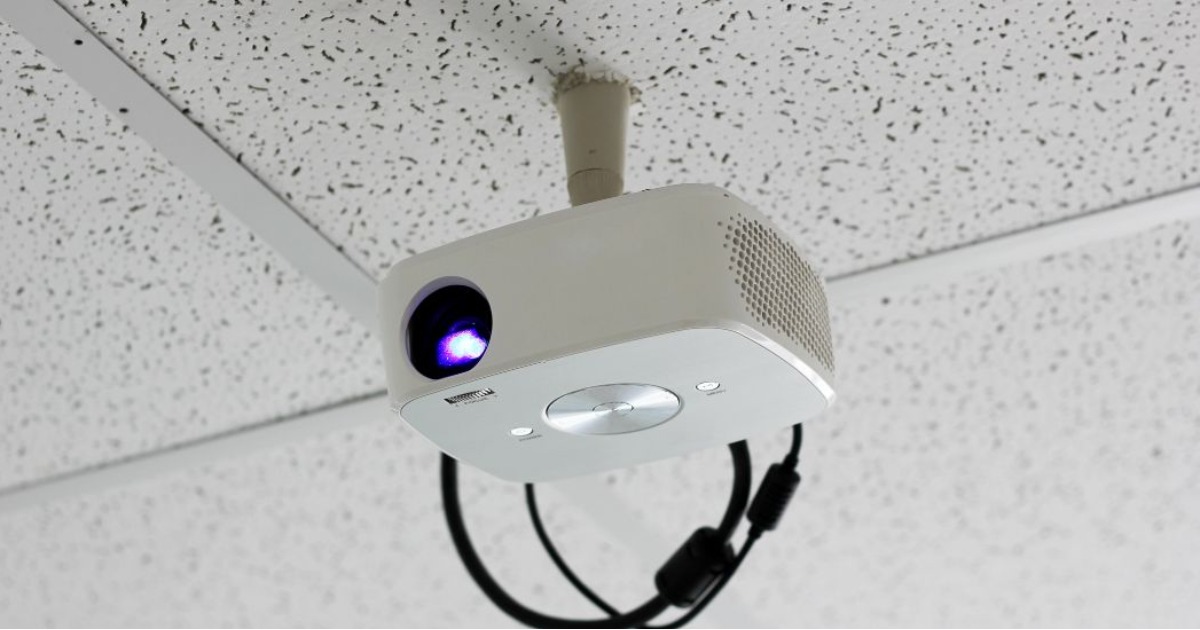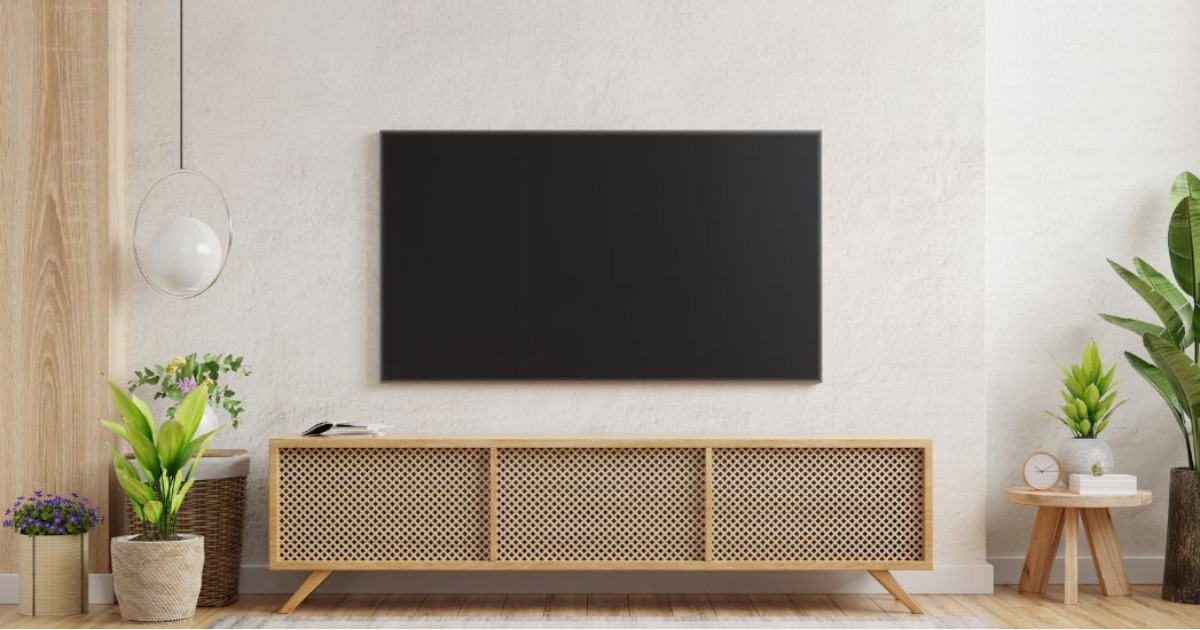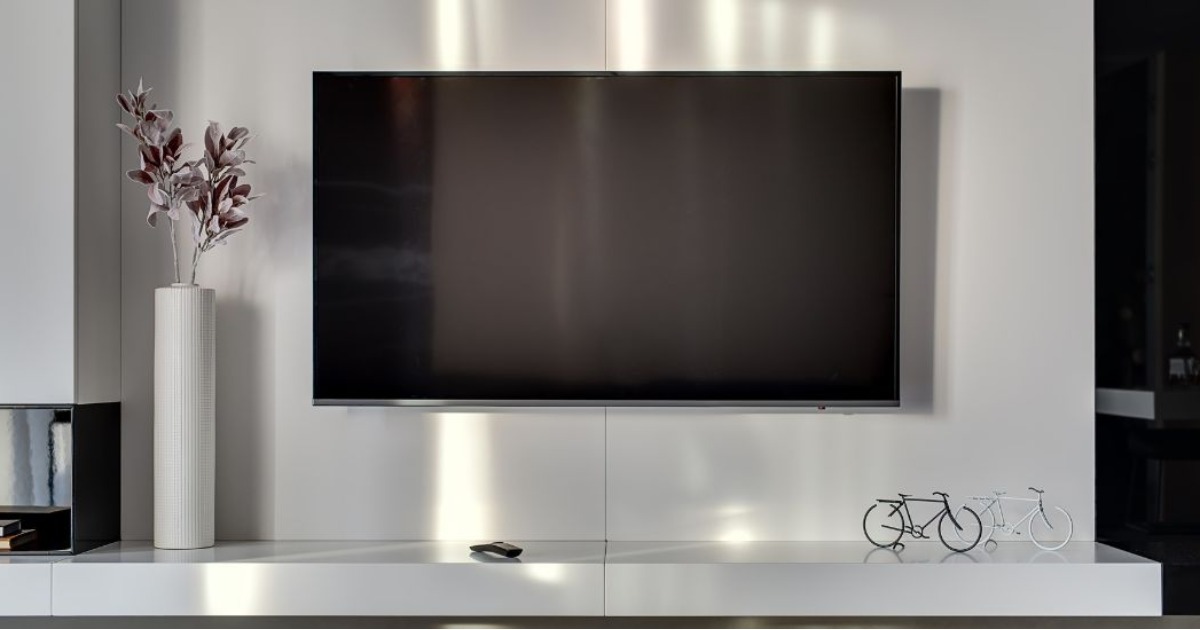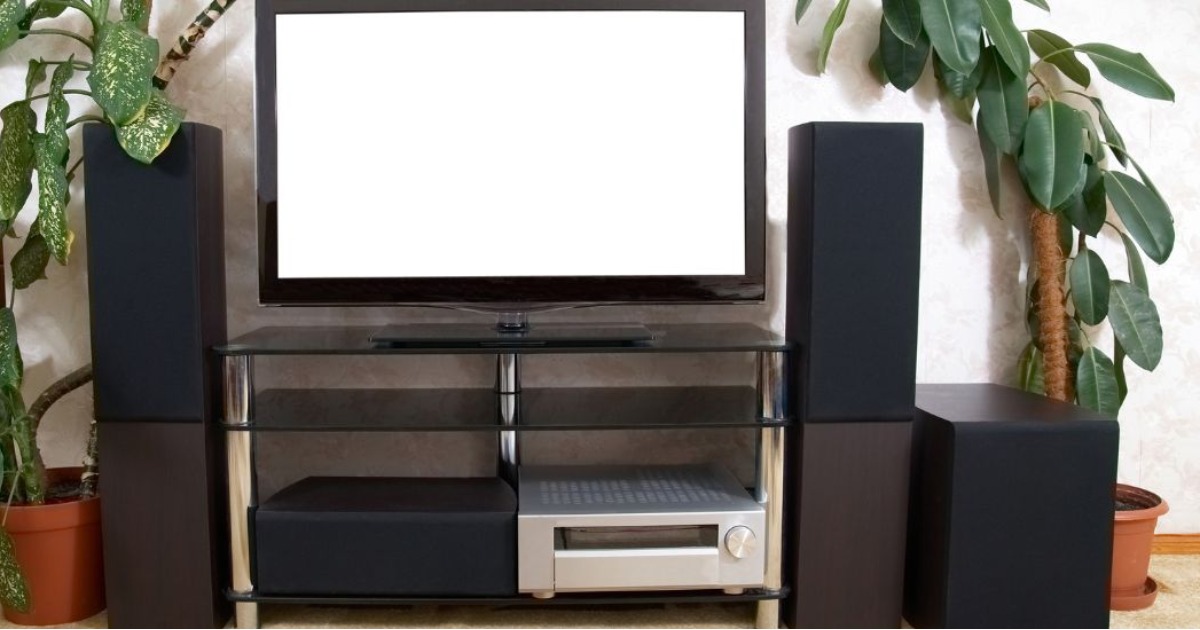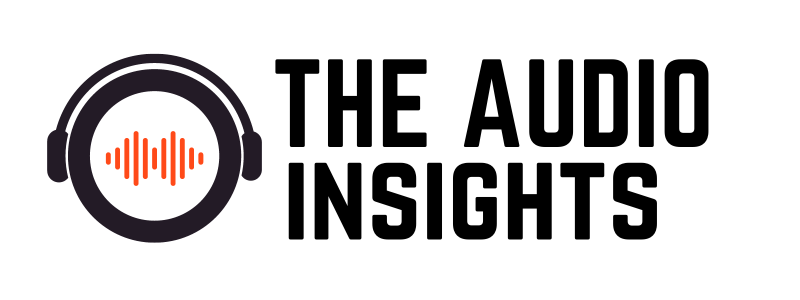The Best Small Studio Mixer For 2024
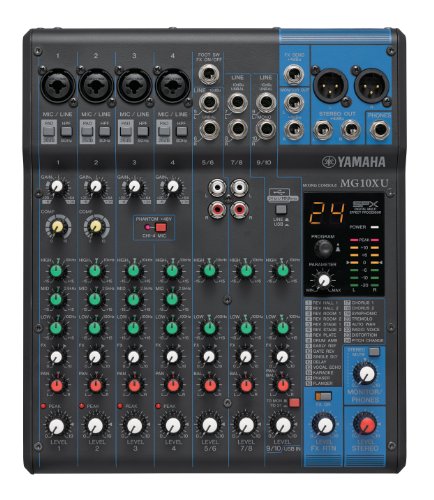
The Rundown
1. Best Overall: YAMAHA MG10XU 10-Input Stereo Mixer
This is a compact and easy-to-use mixer with plenty of high-tech settings for live performance and studio recording. Read Review
2. Best Bang For The Buck: Numark M6 USB 4-Channel Mixer
This four-channel USB mixer provides the freedom to create and perform in whichever way you choose. Read Review
3. Best For Mixed Usage: Behringer XENYX X1204USB Premium Mixer
This mixer brings along some useful applications that are perfect for podcasting as well as mixing music. Read Review
4. Best For Podcast: Rode RODECaster Pro Podcast Production Mixer
This compact mixer is excellent for multi-person live shows or streams on social media. Read Review
Finding the appropriate mixer for your home studio is a struggle, especially for a music producer, as you need to be extremely particular in determining what sort of feature is required for your music production workflow. For artists, producers, and DJs who just require a few inputs and outputs, small mixers are an excellent choice. Having a mixer in your home studio will not only provide you with a more flexible approach to recording, but it will also help you with live streaming, podcasting, and monitoring.
In this article, we'll go through a variety of analog and digital mixers to make sure you can record many sources simultaneously. Whether you prefer conventional simplicity or clever tactics in a mixer, our list of the best small studio mixers has it all.
RELATED: You've arrived at the proper spot if you want to own one of the audio mixer 2 input 1 output on internet without having to spend too much time picking!
Our Top Picks
Four high gain, low impedance combo channels with phantom power are included for versatility. A generous number of line-level inputs. 24 built-in effects that are easily adjustable. The output is simple to use for XLR connections.
The microphone mounting mechanism cannot be removed without unscrewing it.
The Yamaha MG10XU is a well-designed and compact mixer. It boasts solid construction and outstanding engineering that is reminiscent of Yamaha's top-of-the-line consoles.
The built-in effects give you flexibility in terms of customization. Overall, this is an excellent choice for a low-cost mixer with excellent capabilities that is well-suited to singer-songwriters for both live performance and recording.
A 'plug and play' function that allows connecting to computers, iPads, and other devices more easily. It has a USB connection and 3-band EQs. Easily-accessible crossfader for seamless fading between sources. The solid steel makes it durable.
It’s a bit larger and heavier than some other products.
This is a mixer from Numark with an old-schooled and retro design. With a modest price tag, the Numark M6 is a high-quality mixer with valuable features compared to other models from the same range.
On top of that, this gadget provides pro-level connectivity possibilities for users. For example, the M6 USB can effortlessly connect to any DJ gear of your choosing.
Four phantom-powered mono channels are suitable for microphones. Built-in compressors are ideal when dealing with high-dynamic-range inputs. Powerful USB interface for recording purposes. Main mix outputs are balanced with old-plated XLR connections.
The FX processor occasionally makes noise.
The Behringer XENYX X1204USB mixer is a fantastic versatile analog mixer with a lot of features at a very affordable price. It comes with several built-in features, especially for microphones and instruments, that make it a good choice for small and simple settings.
Plus, its USB capabilities make it ideal for music recording and podcasting.
Eight programmable pads for sound effects and jingles. A decent number of inputs and outputs with analog and digital options. Super compact and portable. User-friendly interface.
It lacks some high-tech features in comparison with other devices.
The Rodecaster Pro is a complete podcasting mixer in a portable package. This is a unique piece of audio gear since it was created specifically for podcasting.
Every control dial, slider, and pad is well labeled, so you’ll be able to operate all of the connections without instructions. All in all, this device excels its performance when you're recording live, especially in a distant area.
TAPE inputs and outputs can be connected to CD players, recorders, and more. All channels include a 3-band EQ for clean, precise tone shaping. Stereo RCA inputs/outputs for recording and playback. The headphone output has volume customization.
There are no balanced XLR main outputs.
This small mixer is extremely economical as it is particularly intended for situations where a small, low-profile mixer is required to blend a few signals, such as in a simple live or studio environment. The mixer's uses are quite broad with a simple design for the cost.
Generally, it's a well-made, low-noise, small mixer that performs exactly how it's supposed to.
There are controls for FX settings. Integrated wireless Bluetooth receiver. Comes with a USB flash drive reader that is compatible with MP3 digital music files. User-friendly features include LED indication lights and rotary adjustment knobs.
It’s missing some compressors for recording music.
Pyle PMXU88BT is a portable Bluetooth-enabled 8-channel audio mixer with multichannel mixing capabilities. The overall exterior quality is durable and sturdy.
Besides, the device is simple to install and use, even for newbies. We were impressed to see lots of functions that we expected to only find in more expensive models. Therefore, this little machine will be of great help for both beginners and professionals.
Designed to have high headroom with the noise-minimized operation. Advanced RF rejection is ideal for broadcast applications. It features phantom power for microphones. The controls are built for high contrast and high visibility.
Since there are many knobs and buttons on a small interface, it may be too confusing for beginners.
Aside from sounding excellent, the Mackie 1642VLZ4 mixer is a reliable piece of hardware. It has a rock-solid construction with the capability to enhance sound quality.
There are tons of knobs and buttons on this compact mixer to give you free control and ultimate audio customization. With this device, your recordings will sound fantastic with minimal noise and a natural tone.
- Easy control and pro sound with 1-TOUCH COMP/EQ, EFFECT and AMP SIM processing.
- Includes Cubase Al (downloadable version) recording/midi-sequencing software.

- With a single knob, you can blend between monitoring your computers output and a direct feed from the mixer. Great for recording overdubs alongside a pre-recorded track.
- With 24 different FX options, from reverbs to delays, adding some drama to your sound is easy easy. easy. easy (delay, get it?).
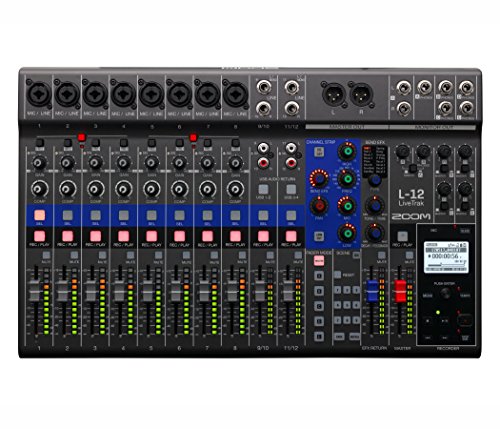
- Scene saving function, up to 9 scenes saved at a time
- 14 -in/4-out USB audio interface connectivity
How Could You Recognize Whether best small studio mixer Suit With You Or Not?
Some of you may be reluctant to select one of the best small studio mixer, to be honest. The main reason is that you didn’t study that before. There are pretty lots of factors that must be considered when investing in best small studio mixer. You are expected to count on our expertise in best small studio mixer to make the right choice.
Along with these factors, we also include some questions concerned by many customers. It’s beneficial for you to look through these:
- What are the practical benefits this product brings about?
- Which line of this product is most loved in the market?
- Where if for you to ask for help with product problems?
- Why should you invest in this product? Does its value worth it?
- How can you choose the best one? Which factors?
Nowadays, best small studio mixer is among the most valuable items users tend to collect. The information sources on the Internet are also essential and available for you to get consulted. The proliferation of many websites and forums helps you have access to the buying guides more straightforward.
So now we move on to the significant factors related to best small studio mixer you must keep in mind:
Portability
A smaller mixer is more convenient and portable in most situations. A mixer that has less than 16 channels is best if you are concerned about portability. While 16 channels are not an exact rule, they represent the compromise between small and large mixers. Make sure your mixer is protected and has a strong chassis. Mixers can even come with knobs or faders that have very delicate settings. This is important!
Inserts And Direct Outputs
Connection Types
Compatibility
EQ
Recording Options
Buses
Analog Or Digital
Channel Count
Functionality
An easy-to-use user interface is essential for a sound mixer. If you don't want to be a professional engineer and use the mixer only for audio purposes, a simple interface is crucial. The ease of operation will allow you to understand what's happening and how you can manipulate it. If you want to be the next Dr. Dre then learn from others and dive into more complex interfaces.
FAQs
How Long Do Audio Mixers Last?
Audio mixers are expected to last between 3-5 years. They are able to return the money they invested. Audio mixers with a life expectancy of 5+ years are not considered obsolete. These mixers can last for a very long time, and they are easily scaleable to accommodate technological changes.Why Are Audio Mixers So Expensive?
They are worth every penny for their quality, functionality, and reliability. Mixers for audio require much effort, labor and are time-consuming. A well-balanced transformer is a costly and time-consuming task. Audio mixers can be a good investment.Does A Mixer Improve Sound Quality?
An audio mixer's primary purpose is to mix and match sounds, as well as alter the bass, middles, and treble. The sum of all the input channels can be merged to produce better sound. A mixer can optimize sound but also filter it. The mixer improves sound quality at the input.Is It Possible To Send The Recorded Audio From One Mic To Two Devices At Once And Listen To Both Of Those Devices At The Same Time?
Mixers are usually one-way, even this mixer. You can either record audio and send it to two devices or receive audio via one pair of headphones. However, it is not possible to simultaneously do them both. You would have to split the signals from both the microphone and devices into separate signal paths.Do I Need A Mixer If I Have An Audio Interface?
A mixer is a great addition to your purchase if you find that you need more audio inputs than your existing interface allows.Can You Get A Mixer With A USB Mic Input?
Professional mixers don't have either a USB input or interface. This is because USB mics don't have as strong a connection as 1/4" or XLR jacks. USB microphones are great options for those on a budget who need to connect directly to the computer. However, audio mixers have a greater capability. Some mixers include a USB interface.What Is The Difference Between An Analog And USB Mixer?
A standalone analog mixer can mix audio from multiple sources. You can then output the audio to a PA system or speaker system. An USB mixer can do this same thing but also has an interface. You can also connect the USB mixer to your computer so you can record it in software.Can A Mixer Replace An Audio Interface?
You can, to a certain extent... however, a stereo mixer will not work the same as a multichannel interfacing which allows you to simultaneously record different audio sources from multiple tracks.Can I Hear My Voice In Real Time? And Will It Record Directly On My Android Phone?
Any sound can be heard entering the mixer. You can also hear your voice through a microphone from the outputs. We recommend that you use the headphones output to hear your voice. Speakers will most likely cause feedback.What Softwares Work Best With Audio Mixers?
It takes careful planning and consideration to find software that is reliable. The best softwares can be free or they can cost you money. Wondershare Filmore and Adobe Audition are our top picks.The list of best small studio mixer is frequently updated whenever new data becomes available. Please take more time to visit our website to stay up-to-date with changes in the product.
You are supposed to be free to get in touch with our customer support. All of your problems or challenges with the best small studio mixer will be carefully considered.
READ NEXT: The 10 Best Tablet 13 Inch Of 2024, Tested By Our Experts









